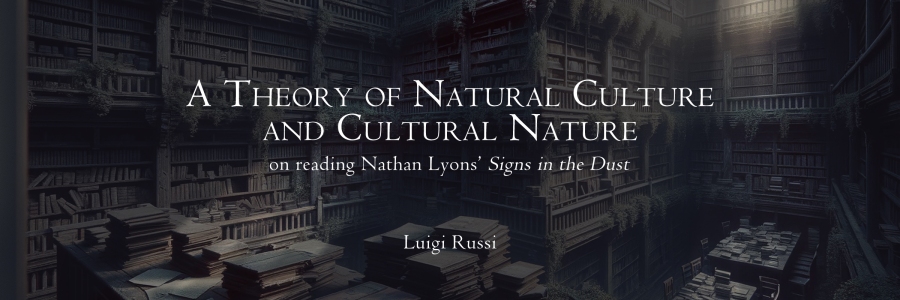[article] A Theory of Natural Culture and Cultural Nature
ABSTRACT: This essay offers an extended, reasoned walk-through Nathan Lyons’ path-breaking text, Signs in the Dust. Every so often, a book comes about that manages to show how a variety of philosophical paths, hitherto regarded as separate, are converging on a common terrain. The value of such texts is to name this common terrain, and to go beyond mere juxtaposition of different philosophical trajectories, actually to disclose the deeper affinity that makes them belong together in a coherent whole. This is what this book manages to accomplish: by showing the rich tapestry of inquiries converging around the nature/culture relationship, it successfully retrieves the medieval conversation on natural culture and cultural nature.… Read More [article] A Theory of Natural Culture and Cultural Nature






